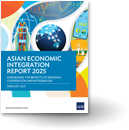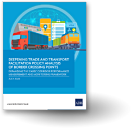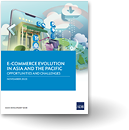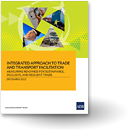To trade with love: Unlocking human potential
What are the key steps in countering a global economic slowdown? Businesses typically cut costs through layoffs and price adjustments. Policy makers, meanwhile, reach for their suite of stimulative fiscal and monetary policies with the renewed aim of rebalancing by relying on domestic demand to kick-start growth.
Often neglected, however, is the possibility of a people-first approach. This can be a more powerful remedy and have a longer-lasting impact on consumers than, say, a special offer to increase sales or protectionist measures to shield domestic firms from foreign competition.
Companies employ all manner of strategies to produce a lasting impression on customers. Some go beyond advertising to engage community-friendly activities such as corporate social responsibility initiatives or fair-trade buying practices.
But they do not empower employees to do anything more than follow a company-wide policy. What happens when firms create an environment that allows employees to act in a beneficial way because they know it is the right thing to do?
Here are two stories told by Bill Taylor in his Harvard Business Review blogs that demonstrate such actions and their impacts on business. In the first story, a terminally ill cancer patient complained to her visiting grandson, that she would love a bowl of her favorite clam chowder from Panera Bread. Her grandson called the store, only to find that it was a special and not on the menu that day. But when the shop manager heard his story, she not only agreed to make the clam chowder especially for Brandon’s grandmother, she also threw in a box of cookies.
In another day and age, such an act of kindness might have gone unnoticed. But in today's world of ubiquitous social media, this story has an unexpected twist. The grandson shared an account of the manager’s kindness on his Facebook page, which was reposted on Panera’s fan page. Now, the story has gone viral with over 815,000 "likes" and 35,000 comments and counting! Indeed, the company "…got something that no amount of traditional advertising can buy—a genuine sense of affiliation and appreciation from customers around the world." Next time I go to the US, rest assured I will visit a Panera Bread shop.
The second story took place at a car dealership. Bill decided to buy his father a Cadillac for his 75th birthday. A long time fan of Cadillac, the father found a new model at a showroom and showed the dealer a $1,000 customer loyalty discount card he had. But it turned out the discount had expired the day before and the dealer would not bend the rules.
Feeling disappointed, he went to a nearby Buick dealership. He told the Buick dealer about his recently expired loyalty certificate with Cadillac. The dealer assured Bill’s father that they would honor its competitor’s expired certificate. The dealer than offered to let him test drive the car that had caught his fancy for the weekend!
But when Monday arrived, Bill’s father was rushed to the hospital for an operation. When he called the dealer to explain the delay, the dealer asked him not to worry and wished him a speedy recovery. He even sent a bouquet of flowers and a nice note to Bill’s father at the hospital. To no one’s surprise, Bill’s father bought the Buick once he recovered.
Businesses and policy makers often forget that "[s]uccess today is… much more than just price, quality, and reliability—pure economic value." It is about choosing to extend our most humane values to others, or as Michelle Obama puts it "…it’s about the difference [we] make in people’s lives."
The field of behavioral economics has explored the utility of "nudging" people to make better choices about their own health and happiness. Still, this is different from the acts of such individuals like the Panera Bread manager or the Buick dealer, which stem from an inner desire for the well-being of others. The trick is to activate and energize awareness, which often times remains weak and dormant, to realize its higher potential.
This idea may seem farfetched in the business world. Yet, if Google’s Jolly Good Fellow, Chade-Meng Tan, has his way, this will soon be the "operating system" of all Google employees and interested individuals, including you and me. In his book Search Inside Yourself, Meng introduces techniques that help individuals to become more compassionate and better leaders for the benefit of their business and community, while also helping them to attain peace and happiness.
So, by all means, we should have a supportive business environment. But lower interest rates and higher barriers-to-entry may not yield as solid a return as the simple acts of compassion. After all, it is humans that make up businesses and organizations rather than machines.




